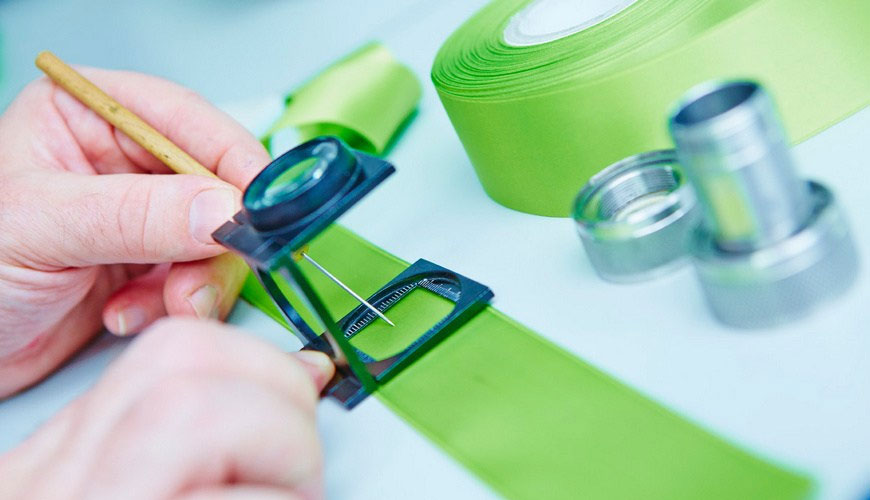

EUROLAB, together with its state-of-the-art accredited laboratories and expert team, provides precise and fast testing services within the scope of ISO 21701 testing. This standard specifies a test method for determining the biodegradability of the hydrolyzate of textile materials obtained after accelerated hydrolysis under controlled composting conditions by measuring the amount of carbon dioxide emitted by a gas chromatography.

This test method is applicable to petroleum-based man-made biodegradable textile materials produced from polyethylene terephthalate succinate, polycaprolactone, polypropylene carbonate, polybutylene succinate or copolymer using them.
The representative bio-based, man-made biodegradable fiber is polylactide and is produced from petroleum-based, man-made biodegradable fibers polyethylene terephthalate succinate, polycaprolactone, polypropylene carbonate, polybutylene succinate, or copolymer using them.
Biodegradation of petroleum-based fibers is relatively slow compared to bio-based or natural fibers due to the chemical nature. In addition, the rate of biodegradation of textile materials such as fibers and yarns can be adversely affected by the high molecular weight, degree of crystallinity and orientation that occurs during spinning. Although some standards, such as gas chromatography or infrared analysis, refer to instrument analysis, the process and calculation method is not standardized.
Therefore, it is difficult to determine the biodegradation of petroleum-based textile materials using existing standards for natural fibers, bio-based fibers or plastic materials used for packaging. To overcome these difficulties, a new test method with a combination of accelerated hydrolysis and biodegradation using instrument analysis has been proposed for the analysis of evolving carbon dioxide.
Under the composting of textile materials, both mechanisms, abiotic and biotic processes, work together and the microorganisms eventually remove the hydrolyzate in a synergistic process. Reproducing this in the lab is difficult and time consuming. For convenience, accelerated hydrolysis, which is an abiotic process, should be performed by followed by biodegradation. The rate and extent of molecular weight loss are measured as indicative of losses in physical properties from accelerated hydrolysis, and then the biodegradability of the hydrolyzate is estimated by directly measuring the carbon dioxide evolved by a gas chromatograph.
EUROLAB assists manufacturers with ISO 21701 test compliance. Our test experts, with their professional working mission and principles, provide you, our manufacturers and suppliers, the best service and controlled testing process in our laboratories. Thanks to these services, businesses receive more effective, high-performance and quality testing services and provide safe, fast and uninterrupted service to their customers.
To get an appointment, to get more detailed information or to request an evaluation, you can ask us to fill in our form and reach you.